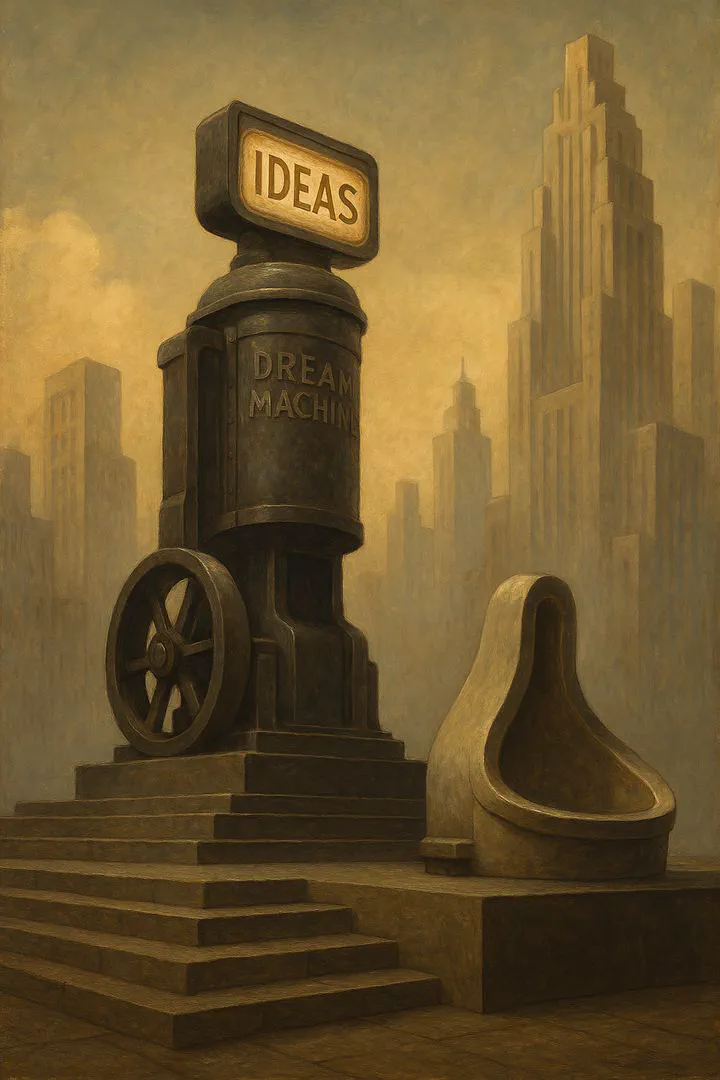Execution is Free

The Parable of Idlebrook
Long ago, in the quiet village of Idlebrook, a mysterious machine appeared overnight in the town square. Shimmering gently beneath the morning sun, it bore a simple inscription: “Speak your dreams, and they shall become real.”
At first, villagers approached cautiously. Elena whispered of a garden filled with golden roses, and instantly the earth bloomed vividly before her. Jacob dreamt aloud of a towering library, and the village marveled as shelves stacked high with books rose gracefully from the ground.
Excitement buzzed briefly through Idlebrook. But soon, wonder faded to silence. The garden lay untouched, petals falling unnoticed. The library stood quiet, its stories unread. Villagers, now capable of realizing their every dream effortlessly, found themselves hesitant, unsure, and ultimately idle.
A wandering sage observed the village, its miracles unused, and quietly asked the oldest villager, “Why do your gifts remain untouched?”
The elder smiled softly, “Dreams are easy to speak, easier now than ever before. But the will to live them—that has always been rare. When granted every possibility, we discover that our greatest challenge lies within.”
In our time, as execution becomes effortless, the true test emerges: not in the doing, but in the daring to truly want, to pursue, to choose.
We’ve spent decades celebrating the rise of the “knowledge economy,” but let’s be real—most of what’s been called “knowledge work” is actually just executing known ideas. Creating slide decks, writing code, crafting reports, managing spreadsheets—these aren’t groundbreaking insights; they’re tasks dressed up as knowledge.
Historically, execution was costly and complicated. Imagine having a brilliant app idea five years ago. You’d need developers, designers, product managers—significant resources and capital. Many potentially transformative ideas remained unfulfilled simply because the barrier to execution was too high.
AI is rapidly dismantling those barriers. Suddenly, execution has become cheap—borderline free. You don’t need a development team; you just prompt. Coding, graphic design, content creation—tasks previously requiring specialized talent and substantial budgets—can now be done in moments, by anyone.
We’ve seen this pattern before, notably in the art world. The early 20th century saw movements like Dadaism and Surrealism reject traditional artistic execution in favor of radical conceptual innovation. Marcel Duchamp didn’t painstakingly sculpt his way to fame; he famously placed a urinal in a gallery and titled it “Fountain,” challenging perceptions of art itself. René Magritte’s brilliance wasn’t in meticulous realism, but in thought-provoking juxtapositions that questioned reality. These artists proved that ideas—bold, original, provocative—were more impactful than mere technical execution.
Today, we’re experiencing a similar shift—but at an unprecedented scale. With AI making execution trivial, the premium is shifting decisively towards those who can conceive compelling and novel ideas. We’re entering an era akin to the modern art revolution, where creativity isn’t hindered by the traditional limitations of practical execution.
The implications are enormous. Barriers collapse. The playing field levels. Innovation accelerates. But as our parable suggests, the true challenge may not be in our ability to execute, but in our courage to imagine and pursue what truly matters.
Now, more clearly than ever, you can just do things. The question is: what will you choose to do?